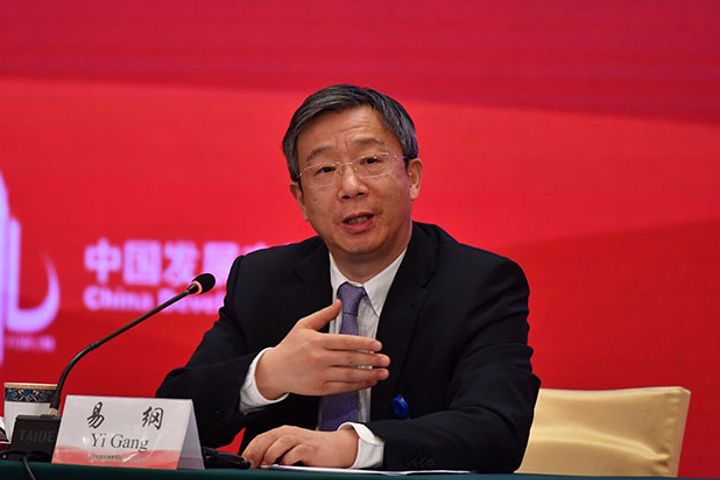 China's Financial Sector to Balance Opening-Up With Regulation, New Central Bank Governor Says
China's Financial Sector to Balance Opening-Up With Regulation, New Central Bank Governor Says(Yicai Global) March 26 -- China's central bank will continue to pursue a prudent and neutral monetary policy so as to provide a suitable financial environment for supply-side structural reforms and high-quality economic development, according to the institution's new head.
The People's Bank of China, will put equal emphasis on the opening-up of the country's financial sector and the prevention of financial risks, said Yi Gang in his first public speech in the position, at the China Development Forum in Beijing.
China aims to properly control the overall money supply and maintain reasonable but stable liquidity in the banking system.
To this end, China will implement prudent and neutral monetary policy, promote financial reforms and opening-up and guard against financial risks to ensure stability.
On a macroeconomic level, China's financial risks include high leverage, Yi said, adding that problems such as persistently high corporate leverage, hidden local government debt and the rapid growth in household leverage deserve attention.
There also remain acute problems affecting some sectors and regions related to irregular fund-raising, improper approval of financial institutions and non-compliant financial businesses.
The country's financial sector also faces risks from a growing number of financial shareholding groups, Yi said, highlighting problems such as illegal withdrawals of capital, fake capital injections and interest channeling through illicit related-party transactions, which could lead to risks for various institutions, markets and industries.
Yi aims to address the problems posed by stabilizing leverage at a macro level, improve regulatory framework underpinned by monetary policy and macro prudence, strengthen macro-prudential management, improve the ability to guard against systemic risks, vigorously develop a multi-layer capital market, and steadily increase the share of direct financing.
Deepening financial reforms and in other sectors is also a priority for Yi, as well as supporting fiscal and tax system reform with the aim of guarding against systemic risks and improving the new local government debt financing system.
Yi will also exert efforts to strengthen and improve financial regulation, and put in place regulatory measures where needed as quickly as possible.
The government did not include specific growth targets for M2, a broad measure of money supply or social financing scale for this year in the National People's Congress government work report.
PBOC will control overall supply quantity and pay more attention to structural quality improvement to better serve the real economy, Yi Gang said.
As for the future development of the financial sector, Yi said China will actively advance the reform and opening-up of the financial sector to enhance the competitiveness of the Chinese financial sector.
The higher the degree of openness, the more competitive industries will be, Yi said, adding that the lower the degree of openness, the more backward industries will be, and the higher the accumulated risks.
The opening-up of the financial sector should comply with three rules, Yi said. Firstly, as a competitive service industry, the financial sector should abide by the requirements of the pre-establishment national treatment and negative list, which determines industries in which foreign participation is prohibited or limited; secondly, the opening-up of the financial sector should be coordinated with capital account convertibility through the implementation of exchange rate formation mechanism reform, to achieve for joint progress; thirdly, the opening-up and the prevention of financial risks should be equally emphasized, and the degree of openness should be matched with supervisory guidance.
Specifically, China will ease restrictions on entry into the financial sector, steadily promote the internationalization of Yuan, and advance two-way opening-up of the market, Yi Gang said.
With regard to financial supervision, Yi said that for the next step, China will seek improvement in stability and in compliance with laws and regulations to prevent and eliminate material risks. China will adhere to the bottom line of no systematic risk, he said.
To be specific, China will stabilize the macro leverage, deepen reforms in key sectors such as the financial sector, strengthen and improve financial supervision, close loopholes in supervision as soon as possible, and crack down on illegal financial activities, Yi Gang said.
The government will strengthen entry management for the financial sector and crack down on unlicensed business activities or financial businesses that operate beyond the approved scope. "Without approval from financial regulators, no institution can engage financial business in a direct or disguised manner," Yi Gang said.